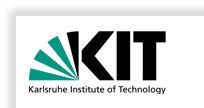| Bibliography |
|
| Content of teaching | Scope of the lecture eEnergy: Markets, Services, Systems is economics and information management in energy markets. Integration of the growing number of renewable energy sources imposes new challenges on energy markets and the power system. To improve coordination between supply and demand it is necessary to interlink centralized and decentralized generators as well as consumers by means of ICT. Current electricity networks are extended by intelligent IT components thus incorporating the "Smart Grid". Existing market structures for electricity have to be adjusted for a successful implementation of demand side management and integration of an increasing number of renewable energy producers as well as electric vehicles. Apart from regulatory and economic concepts, methods for modeling and analysis of energy markets are introduced and explained during the course. The lecture is structured as follows:
|
| Annotation | The lecture has also been added in the IIP Module Basics of Liberalised Energy Markets. |
| Workload | The total workload for this course is approximately 135.0 hours. For further information see German version. |
| Aim | The student
|
| Exam description | The assessment consists of a written exam (60 min) (according to §4(2), 1 of the examination regulation). By successful completion of the exercises (according to §4(2), 3 of the examination regulation) a bonus can be obtained. If the grade of the written exam is at least 4.0 and at most 1.3, the bonus will improve it by one grade level (i.e. by 0.3 or 0.4). The bonus only applies to the first and second exam of the semester in which it was obtained. |
eEnergy: Markets, Services, Systems
| type: | Vorlesung (V) | links: | weitere Informationen |
|---|---|---|---|
| semester: | SS 2017 | ||
| time: | 2017-06-01 08:00 - 19:00 täglich 01.93 Seminarraum K1 01.93 Kronenstraße 32 |
||
| sws: | 2 | ||
| lv-no.: | <a target="lvn" href="https://campus.studium.kit.edu/events/4ToX9MqlR22gpIylASQ16Q">2540464</a> | ||


